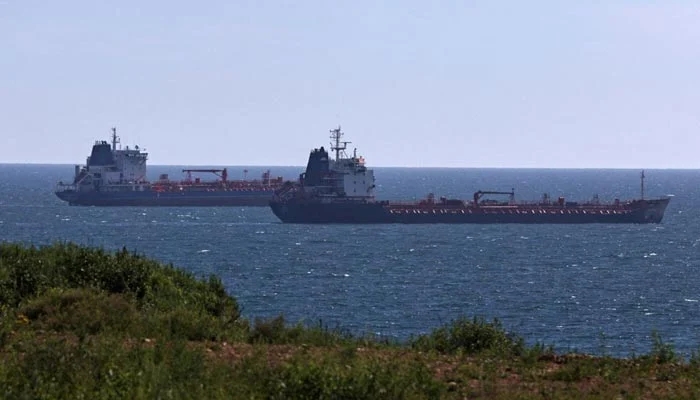- Russian ship carrying 750,000 barrels crude to arrive in June.
- Shipping cost has also been estimated somewhere at $15 per barrel.
- Sources say Pakistan has finalised per barrel price close to $50-52.
ISLAMABAD: Pakistan is most likely to pay for the Russian oil in Chinese Yuan with the test cargo carrying 750,000 barrels of crude expected to dock in June, The News reported Friday.
“The cargo might also reach by the end of May,” a senior official from the Ministry of Energy told the publication.
It has been learnt from sources that Pakistan will pay the price of crude most probably in the Chinese currency and the “Bank of China may play its role for transactions.”
However, the official refused to divulge in crystal clear terms the details about the mode of payment and the exact discount arguing it is not in the interest of the country and the seller also does not want to make it public fearing backlash from the other countries buying Russian oil directly from Moscow.
“Russia will provide URAL crude in the test cargo and most probably Pakistan Refinery Limited (PRL) will be tasked to refine the Russian crude,” he added.
Commercial analysis of Russian crude has been conducted in favour of Pakistan’s economy but it will further be cross-checked after refining the Russian oil.
The shipping cost of the Russian oil has also been estimated somewhere at $15 per barrel, but it will be finalised after it arrives at the Pakistan port.
Other sources confided that Pakistan has finalised the per barrel price close to $50-52 against the cap price of G7 countries at $60 per barrel.
Pakistani refineries have been importing 80% of crude under long-term agreements from ADNOC and Saudi Aramco and in the remaining 20% there is a cushion to purchase Russian oil under GtG on a long-term agreement to some extent.
But the government would also prefer to keep some cushion for purchasing the crude from the international market as the crude price can go down even blow the cost signed under the long-term agreements.
“Pakistan had earlier desired to get Russian crude price with a discount close to $50 per barrel, $10 per barrel below the cap price imposed by G7 countries on Russian oil in the wake of the war on Ukraine.”
However, one of the top guns in the coalition government said that the decision to import Russian crude under the GtG agreement at a 30% discount might not provide the required relief.

 Latest News1 day ago
Latest News1 day ago
 Latest News1 day ago
Latest News1 day ago
 Latest News1 day ago
Latest News1 day ago
 Latest News1 day ago
Latest News1 day ago
 Business1 day ago
Business1 day ago
 Latest News1 day ago
Latest News1 day ago
 Latest News1 day ago
Latest News1 day ago
 Business1 day ago
Business1 day ago






















